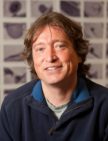Washington Rep. Jamie Herrera Beutler Plans Telephone Town Hall
adrianaWashington Rep. Jamie Herrera Beutler will reach out to her constituents during the two-week congressional recess. But, like some of her colleagues, the Republican Clark County congresswoman won’t be meeting them in person but by phone. It’s her second with that format in recent months.

Washington State University political science professor Carolyn Long said call-in town halls have become common for some representatives, especially as the political climate has become more polarizing. But Long added the trend could cause issues.
“Constituents want to feel a connection to their elected representatives,” she said. “If they’re not seeing them, if they’re not in a situation to shake their hand or talk to them directly, I think they start to feel ignored.”
 Oregon Trail diaries offer an unusual perspective on a significant era in American history, said Steve Fountain, a history professor at Washington State University Vancouver. Their authors seemed to realize they were participating in something historic and wanted to document it.
Oregon Trail diaries offer an unusual perspective on a significant era in American history, said Steve Fountain, a history professor at Washington State University Vancouver. Their authors seemed to realize they were participating in something historic and wanted to document it.
